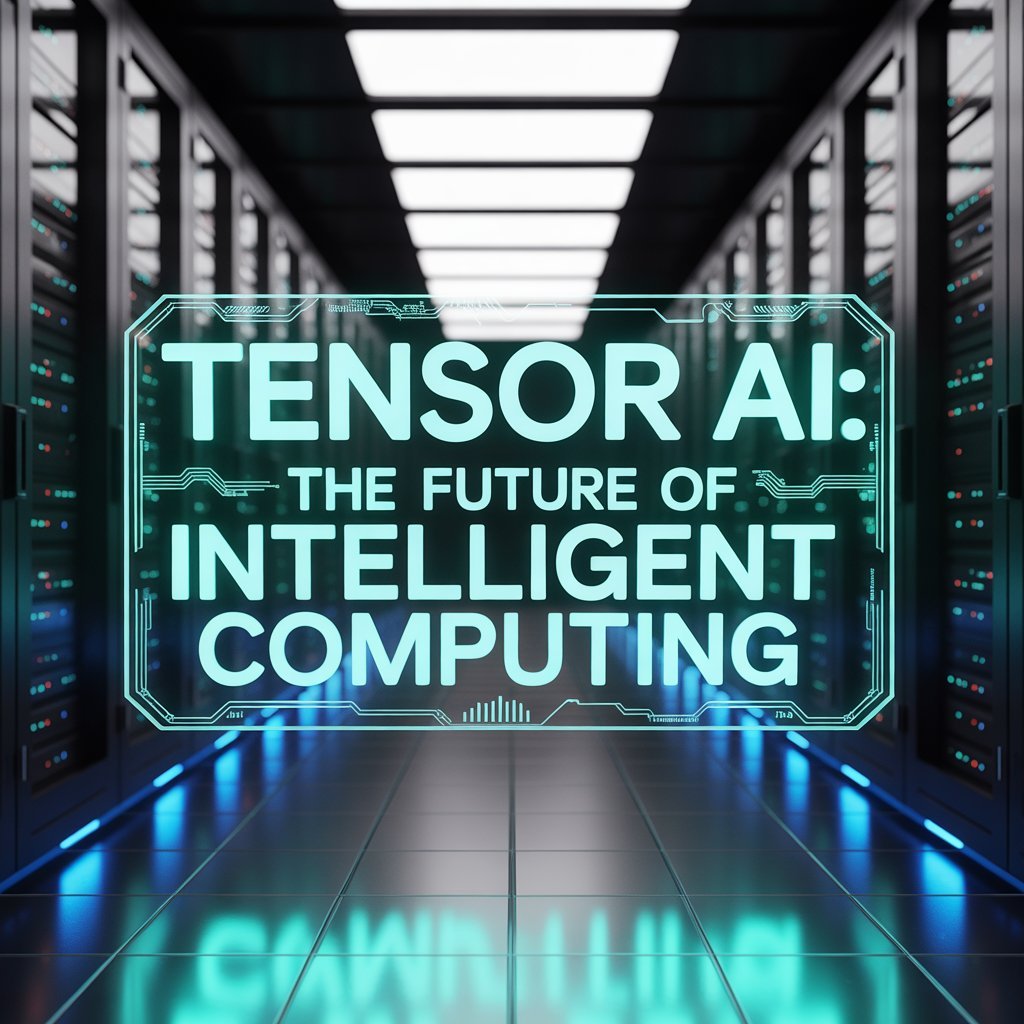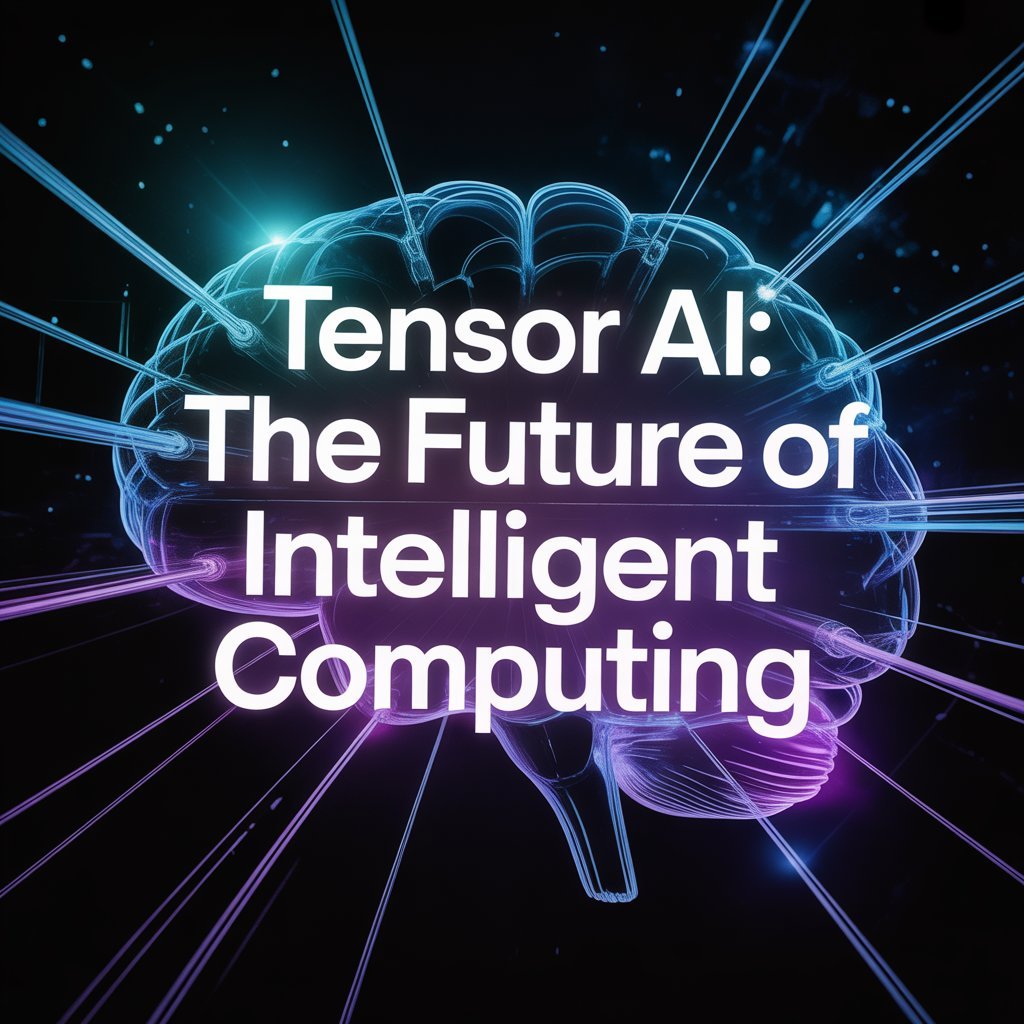Tensor AI: The Future of Intelligent Computing

Tensor AI is rapidly becoming one of the most talked-about technologies in artificial intelligence, revolutionizing the way data is processed, interpreted, and applied across industries. Built on the concept of tensors, a mathematical structure used to handle multi dimensional data, Tensor AI powers advanced machine learning frameworks, natural language processing, and computer vision systems. From healthcare to finance, its real-world applications are reshaping decision-making and automation.

The growing popularity of Tensor AI is not limited to research labs. Tech companies, startups, and even small businesses are using Tensor-based AI tools to analyze massive datasets, predict outcomes, and streamline operations. Discussions on Reddit and top AI forums reveal that Tensor AI is seen as the backbone of tools like TensorFlow, PyTorch, and Google’s AI initiatives. This article explores what Tensor AI is, how it works, its benefits, risks, and community insights helping you understand why it is called the next big leap in artificial intelligence.
What is Tensor AI and Why is it Important?
Tensor AI refers to artificial intelligence systems that rely on tensors to process and learn from high-dimensional data. Tensors are essentially arrays of numbers that can represent complex datasets, such as images, text, or sound. By leveraging tensors, AI models can handle massive amounts of structured and unstructured data simultaneously.
On Reddit’s AI and ML communities, users emphasize the importance of Tensor AI in enabling scalable learning algorithms. Unlike traditional models, tensor-based frameworks allow for faster training and more accurate results. Google’s TensorFlow is a prime example it uses tensors as its foundation to build deep learning models capable of recognizing patterns and predicting trends.
In simple terms, Tensor AI makes AI smarter, faster, and more adaptable. It provides the computational backbone for neural networks, enabling breakthroughs in voice recognition, self-driving cars, and medical diagnostics. Without tensors, AI would struggle to process real-world, multi-dimensional data effectively.
How Does Tensor AI Work in Machine Learning?
Tensor AI operates by representing data as tensors and using them within machine learning algorithms. Each tensor holds numerical values that describe the dataset, such as pixel intensities in an image or word embeddings in text. These tensors are then passed through neural networks, which apply transformations and extract meaningful features.
According to top sources, tensors are the universal language of modern AI. They help models perform matrix operations efficiently, making it possible to train deep learning models with billions of parameters. Reddit users often compare tensor operations to Lego blocks simple structures that can be combined to build highly complex models.
Tensor AI frameworks like TensorFlow and PyTorch make this process more accessible, providing developers with libraries that abstract tensor operations while still allowing customization. This makes machine learning both powerful and practical, ensuring that even small teams can create models that rival those built by major tech firms.
What Are the Real-World Applications of Tensor AI?
Tensor AI is no longer just a research topic it has real-world applications across various industries. In healthcare, Tensor AI models analyze medical scans, predict diseases, and assist doctors with diagnosis. In finance, it powers fraud detection systems and stock market predictions. In retail, it enhances recommendation engines and demand forecasting.
Reddit discussions highlight interesting everyday uses of Tensor AI, such as voice assistants like Siri and Alexa, which rely on tensor computations for natural language understanding. Similarly, Tensor AI is at the heart of autonomous driving technology, enabling vehicles to process live video feeds and make split-second decisions.
The gaming industry also uses Tensor AI to create smarter NPCs (non-playable characters) and improve graphics rendering. In cybersecurity, tensor-based models detect anomalies in network traffic, preventing attacks before they escalate. These practical applications show how Tensor AI has become indispensable in the digital economy.
Why Do Developers Prefer Tensor AI Frameworks?
Tensor AI frameworks such as TensorFlow, PyTorch, and JAX are popular among developers because they simplify the process of building and deploying AI models. These frameworks provide pre-built functions for tensor manipulation, reducing the need for manual coding of complex operations.
On Reddit, developers often debate whether TensorFlow or PyTorch is better. TensorFlow is praised for scalability and production-readiness, while PyTorch is loved for its flexibility and ease of use in research. Both rely heavily on tensor operations, which makes them efficient for handling big data and deep learning tasks.
Another reason developers prefer Tensor AI frameworks is their compatibility with GPUs and TPUs (Tensor Processing Units). These specialized hardware accelerators drastically improve training speed, making AI development faster and more cost-effective. For startups and enterprises alike, Tensor AI frameworks provide the perfect balance between innovation and efficiency.
What Challenges Does Tensor AI Face?
Despite its benefits, Tensor AI faces challenges that limit its adoption. One major issue is the high computational cost. Training tensor-based deep learning models often requires expensive hardware and significant energy consumption. Small businesses may find it difficult to afford large-scale deployments.
Reddit threads also highlight ethical concerns. Tensor AI models, like other AI systems, can suffer from bias if trained on unrepresentative data. This raises questions about fairness in decision-making, especially in sensitive fields like healthcare and criminal justice.
Another challenge is explainability. Tensor AI models, particularly deep neural networks, are often seen as “black boxes.” While they deliver accurate predictions, it’s difficult to understand how they reach conclusions. Researchers are actively working on interpretable AI methods to make tensor models more transparent and trustworthy.
How Does Tensor AI Compare to Traditional AI Methods?
Traditional AI methods, such as rule-based systems, rely on explicit programming and human-defined logic. Tensor AI, on the other hand, learns directly from data, making it more adaptable and accurate in complex environments.
Sources highlight that while traditional AI is good for narrow tasks, Tensor AI excels in dynamic, data-rich fields. For example, traditional AI might follow a fixed rule to detect spam emails, whereas Tensor AI can learn from millions of email samples and adapt to new spam techniques.
Reddit users often describe Tensor AI as the “upgrade” from old methods. It provides a more robust way to handle large datasets, unstructured information, and real-time decision-making. This comparison makes it clear why Tensor AI is the backbone of modern artificial intelligence.
Is Tensor AI the Future of Artificial Intelligence?
Many experts believe Tensor AI is the foundation of future AI systems. With the growing adoption of AI in industries, the demand for faster, scalable, and more intelligent models is increasing. Tensor AI fits this demand perfectly, as it enables efficient training and deployment of deep learning models.
On Reddit, discussions suggest that Tensor AI will drive advancements in AGI (Artificial General Intelligence). The ability of tensor-based models to handle diverse data types makes them a strong candidate for building systems that can perform human-like reasoning.
Moreover, the rise of quantum computing could further enhance Tensor AI, as tensors align well with quantum data structures. If this happens, Tensor AI could become the most powerful force in next-generation computing.
What Do Reddit Users Say About Tensor AI?
Reddit communities like r/MachineLearning and r/artificial provide valuable insights into how developers and enthusiasts view Tensor AI. Many users share tutorials, discuss best practices, and debate the merits of frameworks like TensorFlow vs. PyTorch.
Common threads reveal that Tensor AI is highly valued for its scalability and performance. However, users also warn beginners about the steep learning curve. Some suggest starting with smaller datasets and gradually moving to advanced applications.
Interestingly, Redditors often share real-world experiments, from building image classifiers to running AI bots in video games. This hands-on knowledge helps new learners bridge the gap between theory and practice. Reddit remains a hub for honest, community-driven discussion about Tensor AI’s strengths and weaknesses.
Conclusion
Tensor AI is more than just a buzzword—it is the engine driving today’s most advanced AI systems. From healthcare to finance, autonomous driving to entertainment, its applications are transforming industries at a rapid pace. By leveraging the power of tensors, AI models can process complex data and deliver insights that traditional methods could never achieve.
Still, challenges remain, including computational costs, ethical considerations, and explainability. However, ongoing research and community discussions, especially on platforms like Reddit, suggest that these obstacles can be overcome.
As businesses and individuals continue to adopt Tensor AI frameworks, the future of artificial intelligence looks promising. Whether you’re a developer, researcher, or simply curious, understanding Tensor AI is essential for staying ahead in the age of intelligent computing.
FAQs
Q1. What is Tensor AI mainly used for?
Tensor AI is primarily used in deep learning, natural language processing, computer vision, and big data analytics.
Q2. Is Tensor AI the same as TensorFlow?
No, Tensor AI is the broader concept of AI using tensors, while TensorFlow is a popular framework that implements tensor-based learning.
Q3. Why are tensors important in AI?
Tensors allow AI models to handle high-dimensional data efficiently, making deep learning possible at scale.
Q4. What are the best frameworks for Tensor AI?
The most widely used frameworks are TensorFlow, PyTorch, and JAX, each with unique strengths.
Q5. What challenges does Tensor AI face?
High computational costs, model bias, and lack of explainability are the biggest challenges.




